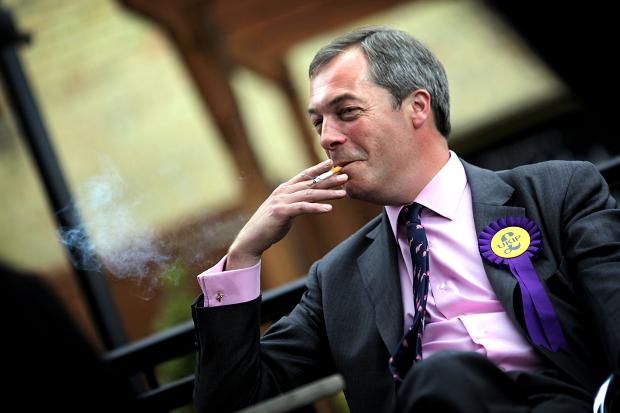Is Politics Becoming Interesting Again?
Posted on May 7, 2013
You have to admit that politics as a subject has suffered from major apathy in recent years. There have been two major parties who have been squabbling over the ground of middle England for at least a decade now and it gets to the point where you can’t calculate who is positioned where. It is fair to say that there are Tories who are almost left of centre and New Labour politicians passing them like ships in the night; it is really confusing stuff.
The death of Margaret Thatcher re-ignited passion the other week and whatever side of the fence you sit, it was great to see people embarking on political discussion rather than X Factor results and the size of Jordan’s latest pair of plastic breasts. I saw an interview on Sky News after the death of Thatcher featuring former Housemartins and Beautiful South frontman Paul Heaton and despite being an out and out socialist, he was pining for the days of politics where it was very much a clear cut battle of the red of Dennis Skinner on one side and the blue of Thatcher on the other.
The problem with modern politics is that it has become a career ladder for the likes of sharp suited Oxbridge boys like Tony Blair and David Cameron whilst the mavericks are marginalised and thrown out of the party or dismissed as buffoons; anyone with a skeleton in the cupboard hasn’t got a hope. Tony Blair was quick to marginalise the like of Gerald Kaufman, Mo Mowlem and Robin Cook, David Cameron does just the same with his eccentric Bullingdon adversary Boris Johnson; a constant thorn in the side of the centre right.
As the coalition leader (which really means Tory) Cameron has gambled on moving away from the right wing sector of his party fearing that he would be seen out of touch with the modern era. His liberal stance on gay marriage and the promotion of women in politics was always going to hurt the far right of the Conservative party but he understandably reckoned that they had nowhere to go except the snarling, pit bull clowns of the BNP or the EDL. He knew they wouldn’t do that and he also knew there was no credible candidate who could become a Thatcher like tabloid hero, to fight for the right. Moving to the centre right was where the votes would be won.
Enter Nigel Farage. No matter what I think of him, I can’t help but listen to the conviction of the man who represents UKIP, a party that David Cameron quite rightly tried to dismiss as “Fruit cakes and closet racists.” The problem Cameron faces is that whilst Farage and his party might be a bit delusional, they are promoting an acceptable face to right wing politics, especially to the blue rinse brigade and those who with nostalgia bordering on dementia, recall the Thatcher years as one of the greatest era’s in modern British politics.
Farage: Dismissed as a Fruit Cake and Closet Racist
UKIP have, to their credit, virtually wiped out the rise of the idiots of BNP and the EDL but in doing so they have caused Cameron a problem he didn’t reckon on. Does he try to appease the right or does he stick to his guns as a centre left leader fighting for the same middle ground as the largely unimpressive Ed Milliband? Cameron can count himself lucky that the more media attractive brother, another David (Milliband) was ousted from potential leadership by the Unions, otherwise he would have a major scrap on his hands come 2015.
For what it is worth, in my opinion, Nigel Farage is an unrealistic political leader enjoying his day in the sun annoying the centre right. I don’t even consider him as wolf in sheep’s clothing but Cameron scored a huge political own goal dismissing him; an own goal that will have the eccentric Boris Johnson and the perennially detestable Theresa May salivating at a tilt at the leadership of the Conservative Party. It is a party that could implode if only there appeared a credible alternative with strong leadership.
What the rise of Nigel Farage might do is create the emergence of strong politicians again. Like them or loathe them, the likes of Tony Benn, Michael Heseltine, Willie Whitelaw, Neil Kinnock, John Smith and Margaret Thatcher were in politics for political reasons, not as a step on the ladder to multi-million book deals and conference speaking.
If Farage can, with all his buffoonery, make politics exciting again, then his short career as a fruit cake and a closet racist would have at least been worth it.


Got something to say?